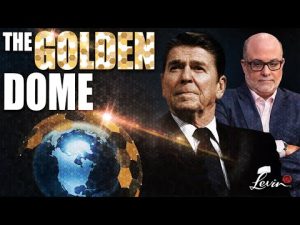In recent political discussions, attention has turned toward potential leaders for the Democratic party. Among the names that have surfaced, Wes Moore stands out, praised for his leadership qualities and handling of sensitive issues. Though Wes Moore has caught the eye of some observers, it’s important to examine the reasons behind this newfound spotlight and the implications it could have on the political landscape, especially heading into future elections.
Wes Moore, a former hedge fund executive and leader of the Robin Hood Foundation, has garnered admiration, particularly for his eloquent communication and composed approach in the face of tragedy in Baltimore. His ability to connect with constituents on sensitive matters has made him a compelling candidate in the eyes of some. However, one must consider whether this polished persona translates into practical leadership skills in a politically charged environment. While his background may give him an edge, the true test of a leader lies in their ability to remain consistent over time, something his critics might argue he has yet to demonstrate.
Interestingly, celebrity support can significantly influence public perception and voter turnout. George Clooney, the Hollywood heavyweight, has thrown his support behind Moore, which raises eyebrows. This can be viewed as a strategic move, considering the Democratic party’s heavy reliance on Black voter turnout. Clooney’s endorsement seems to signal that Moore might be the candidate who could invigorate a critical voter base, but support from Hollywood might not resonate with all voters, especially those who prioritize substance over celebrity endorsement.
Moreover, while Moore’s appeal is notable, it’s essential to compare him with other candidates in the field, such as Gretchen Whitmer and Andy Bashear, who each represent a different focal point in the Democratic agenda. Critics might argue that Moore lacks the gravitas of Obama, whose influence still lingers in Democratic circles. When candidates cannot maintain their appeal beyond surface-level engagement—especially during in-depth discussions—it raises concerns about their ability to unify and lead effectively. An initial charm can be alluring, but true leadership requires depth and resilience.
In conclusion, as the Democratic party navigates through its leadership dilemma, the emergence of candidates like Wes Moore highlights the evolving dynamics in today’s political arena. While he may capture attention with his background and celebrity backing, intelligent voters must look beyond the facade and evaluate the substance of his policies and longevity as a candidate. As the party assesses whom to rally behind, it remains crucial for both voters and leaders to prioritize coherence, resolve, and a genuine understanding of the challenges facing all Americans today. In a world where perception often overshadows reality, the question remains: can Wes Moore transform from a promising figure into a dependable leader for a party in need of direction?







